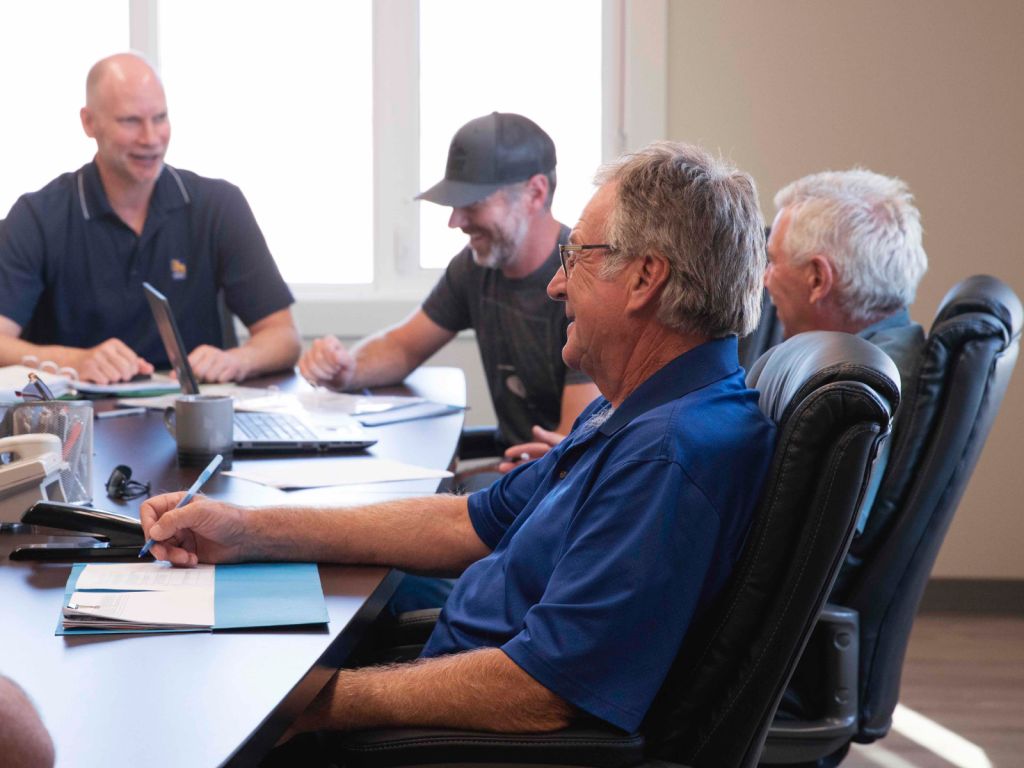Published August 6, 2024 • 6 Min Read
“Every single person can make money,” says Shelagh Cummins, business coach and founder of The Road to Seven, an organization that helps entrepreneurs build profitable businesses through education, coaching and financing. This is especially true today, as the barriers to business ownership are lower than ever and the gig economy is thriving.
Wondering if you have what it takes? Here are six questions to ask yourself to help you get to that answer.
1. Am I passionate about my idea?
“To start a business, you have to stand at the intersection of your genius (what you’re good at), your passion (what you believe deeply in) and your need (what gap you can fill). When you find that intersection, that’s where you can start building,” says Cummins.
It’s the passion piece of the puzzle that is particularly critical and often gets overlooked – because if you’re building a business that’s not rooted in passion or purpose, it can quickly become a job you have to do. The passion is what’s going to keep you going when the work feels too hard.
2. What does success mean to me?
Success looks different to everyone, so it’s important to define what success means for you specifically. For some people, success is revenue related, for others it’s about community or the desire to work a certain number of hours.
Businesses can also take all shapes and sizes and there’s a difference between being a business owner and being self-employed. One isn’t better than the other, and the path you choose depends on whether you want to be the person “doing” the business or the person “running” the business.
There are so many reasons to start a business. Having – and maintaining – clear perspective on your purpose and your metrics is critical. “This can often get lost as you get caught in the trenches of the day-to-day. It’s very important to come back and realign with that success measure regularly,” says Cummins.
She also encourages new owners to visualize their future self, running the company they want to run, and step into that person, citing “it’s the fastest way to create the bridge from where you are to where you want to be.”
3. Am I resilient enough?
Owning a business has great rewards but it is not for the faint of heart, and it takes emotional and behavioural grit to keep going during tougher times. Building resilience is one of the best ways to weather storms and come out the other side. Whether you face external factors (such as economic uncertainty, supply chain issues or a global pandemic) or common business obstacles (such as cash flow crunches or HR challenges), the ability to adapt to change and get over setbacks can help you get through adversity.
4. Does being an entrepreneur fit with my lifestyle, values and priorities?
Aspiring entrepreneurs can start a business at any age – millennials and baby boomers alike are taking the leap in exciting numbers. That said, time and commitment is needed to ignite your vision. “Starting and running a business is a lot of work, and it’s important to know that going in,” explains Cummins. “If you’re in a life stage where the demands on your time are excessive – for instance, if you have young children at home, start your “business of one” and build at a pace that works for you.”
Having your own business has its perks as you set the course – you can define your own hours, establish your own goals and make your own money. But if you’re dealing with other personal circumstances that are emotionally consuming, you may be limited in your opportunity to build your business in the way that works for you. Ask yourself if it’s worth waiting until you can focus your efforts on the business you truly want to build.
5. Do I have confidence in myself?
As Henry Ford once famously said: “Whether you think you can, or think you can’t, you’re right.” Business owners need to be confident in their abilities, their idea and the impact they can make – at least sometimes.
“As an entrepreneur, you’re not going to feel confident all the time, but you have to be courageous and make the moves that will get you where you want to be,” says Cummins. “The number one thing I say to those who don’t have the confidence to start is: ‘Why not you? If you don’t do it, someone else will.’”
She also identifies that owners can gain confidence through entrepreneurial communities and personal support systems, especially during the times when confidence is wavering. “Finding a community where you feel supported and championed is essential.”
6. Am I a problem solver?
When owning a business, you’re the boss. That means you’re accountable for every decision, every success and every problem. Things don’t always go right 100 percent of the time – and sometimes you need to get creative to make things happen. Resourcefulness – the ability to change course, seize opportunity and find the gaps can sustain you.
When people wonder what it takes to start a business, people often focus on what they need to do in order to succeed. Cummins emphasizes the importance of focusing on what we need to be in order to do those things. “When you align your values and beliefs with what you deem possible, you can create the self-identity you need to get where you want to go,” she says.
Bottom Line
Starting a business is more than a career choice – it’s a life choice. While it’s not necessarily going to be easy, it’s more than possible you can turn your dreams into reality. It just takes some key qualities of character and the drive to make it happen.

Start and Grow Your Business with RBC
Ready to turn your side hustle, passion or idea into a full-time business? Free tools and advice to get you started.
This article is intended as general information only and is not to be relied upon as constituting legal, financial or other professional advice. A professional advisor should be consulted regarding your specific situation. Information presented is believed to be factual and up-to-date but we do not guarantee its accuracy and it should not be regarded as a complete analysis of the subjects discussed. All expressions of opinion reflect the judgment of the authors as of the date of publication and are subject to change. No endorsement of any third parties or their advice, opinions, information, products or services is expressly given or implied by Royal Bank of Canada or any of its affiliates.
Any information, opinions or views provided in this document, including hyperlinks to the RBC Direct Investing Inc. website or the websites of its affiliates or third parties, are for your general information only, and are not intended to provide legal, investment, financial, accounting, tax or other professional advice. While information presented is believed to be factual and current, its accuracy is not guaranteed and it should not be regarded as a complete analysis of the subjects discussed. All expressions of opinion reflect the judgment of the author(s) as of the date of publication and are subject to change. No endorsement of any third parties or their advice, opinions, information, products or services is expressly given or implied by RBC Direct Investing Inc. or its affiliates. You should consult with your advisor before taking any action based upon the information contained in this document.
Furthermore, the products, services and securities referred to in this publication are only available in Canada and other jurisdictions where they may be legally offered for sale. Information available on the RBC Direct Investing website is intended for access by residents of Canada only, and should not be accessed from any jurisdiction outside Canada.
Share This Article






